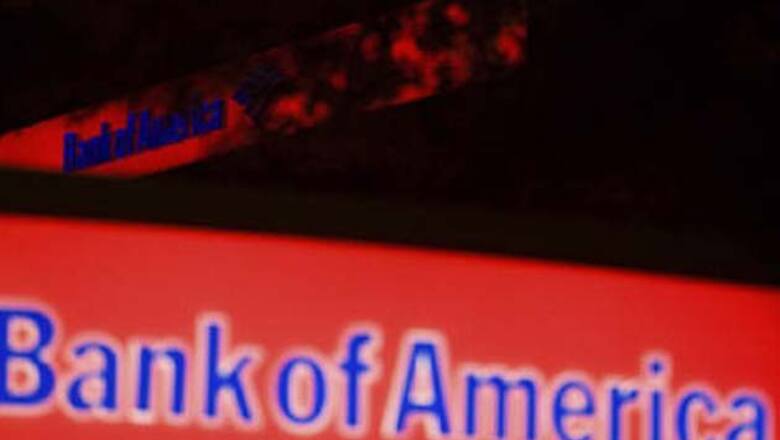
views
Charlotte: WikiLeaks' next data release, early next year, is widely expected to centre on Bank of America Corp (BofA).
WikiLeaks Editor In Chief Julian Assange - currently under house arrest in England - touched off a fevered wave of speculation last month, when he disclosed the group would follow up its release of 250,000 diplomatic cables from the US government in November with a look at the financial sector.
Assange has not named BofA as the target of the next release, but he said in a 2009 interview the group has five gigabytes of documents and data from the hard drive of one of the bank's executives.
On Dec. 1, Bank of America marketing chief Anne Finucane said the company has had no evidence it is the target of WikiLeaks' next release.
Some scenarios for the next WikiLeaks data release include:
Customers and overseers
Bank of America is one of the most heavily scrutinized banks in the world. Since the financial crisis, the bank has been the subject of wide-ranging congressional and regulatory probes, and a barrage of lawsuits.
Analysts said such scrutiny makes it unlikely WikiLeaks would release information that is not already generally known.
Instead, some said WikiLeaks could release sensitive data about customers, namely what the bank thinks of some borrowers.
"Banks talk about their customers all the time, especially in credit committee, but it's the kind of private, candid conversation never meant for public consumption," said Tony Plath, banking professor at the University of North Carolina in Charlotte.
Alternatively, records of conversations with regulators may also embarrass the bank, analysts said.
Bad mortgages, foreclosures
Analysts said the WikiLeaks trove could also include internal correspondence that show the bank knew it was creating shoddy mortgage-backed securities during the height of the crisis. Documents could also show that it cut corners when foreclosing on thousands of US homes.
The two issues have put the largest US banks at the centre of a public firestorm in recent months over whether they are legally entitled to repossess homes.
"That might be the most damaging thing," said Richard Bove, bank analyst with Rochdale Securities.
Many also say that banks will have to buy back billions of dollars of bad mortgages from investors and Fannie Mae and Freddie Mac, because the mortgages were never eligible to be packaged into bonds in the first place.
Chief Executive Brian Moynihan has said the bank will engage in "hand to hand combat" over the loans with investors, but last week the bank started talking with a group of investors that is trying to get the bank to buy back bad loans.
Deals, deals, deals
Bank of America, under former Chief Executive Kenneth Lewis, bought troubled rivals during the height of the financial crisis, which could be the focus of the next WikiLeaks release, analysts said.
The bank announced plans to buy Calabasas, California-based Countrywide Home Loans in January 2008 for $4.1 billion in stock, followed by a buyout of Merrill Lynch & Co, announced as Lehman filed for bankruptcy in mid-September 2008.
The deals, which thrust BofA into the top ranks of US mortgage lenders and global investment banking, were widely criticized by investors.
The Merrill Lynch deal, in particular, attracted congressional and public scrutiny. The bank disclosed billions in Merrill Lynch losses in fourth quarter 2008, along with billions of accelerated bonus payouts to Merrill employees, as the deal was being approved by shareholders.
BofA received an additional $20 billion in US government bailout aid to complete the deal in January 2009, on fears Merrill's balance sheet was worse than the bank anticipated.
Another target?
Another possibility, analysts say, is that the WikiLeaks dump will cover another bank entirely.
Bank of America may not be the subject of WikiLeaks next data dump at all.
Speculation has centred on Bank of America because Assange mentioned the bank in a 2009 interview with technology newswire IDG News Services but has not mentioned them since.
Analysts said another major US bank - like JPMorgan Chase & Co, Goldman Sachs Group Inc, or Citigroup Inc - could instead be at the centre of the next release.




















Comments
0 comment